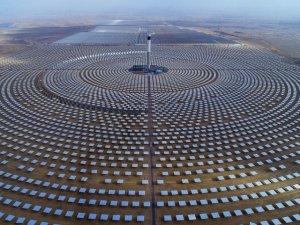 Hey guys! My name is Anna and I’m here to talk about my views on sustainability and my experience of it at King’s. Originally, I’m from France and moved to London in September 2018 to start my BA in Geography. I’m now graduating from King’s, and these past three years have been such a time of growth for me. There are so many things to be said, but here’s a short selection.
Hey guys! My name is Anna and I’m here to talk about my views on sustainability and my experience of it at King’s. Originally, I’m from France and moved to London in September 2018 to start my BA in Geography. I’m now graduating from King’s, and these past three years have been such a time of growth for me. There are so many things to be said, but here’s a short selection.
When I first got here, I knew as much about climate change as your average French high schooler, that is to say: not much, and not nearly enough to start caring. That said, I was already vegetarian, and had made that choice for environmental reasons, about a year prior to coming to London.
In my first semester at King’s, I took a compulsory module on the changing natural environment that ended up changing the academic and career path I had envisioned thus far. Learning about the science of climate change, its societal causes and consequences, and the intricacies in between simply became fascinating to me. The more I learnt, however, the more the lack of political action surrounding environmental issues became frustrating.
I went to an event at the beginning of the second semester, where the guest speaker was a representative of COP24 who came to discuss the decisions that had been taken in Warsaw that year. I expected a lot from this event. It was after all about the institutions that were meant to actively be solving this issue. I distinctly remember the emphasis that was put on the framework developed and agreed upon at the COP for ‘future policy-making’, introduced as perfect to tackle the ‘future realities of climate change.’ To say I was disappointed would be the least. I remember thinking to myself, what about present realities? I realised how inadequate our current institutions were to answer the environmental challenges we now face. For one, they worked on different time scales and levels of complexity. From a mainstream perspective, climate change sounds simple: too many carbon dioxide emissions cause global warming with downsides to nature and society. That simplicity is deceptive. Reducing emissions is a given, how to do so is another story. Socio-economic and political dynamics must be considered, touching upon so many other issues, and making it all the more complex. Questions asked by a worried audience that day remained unanswered.
From this point on, making sense of governance to solve our contemporary challenges, especially from an environmental perspective, became the focus of my human geography degree. One thing about me though: I am deeply passionate and simply cannot let go of the causes I care about. I get that from my mum, who always reminded me that my voice matters, by listening and using her own. When it came to climate change, the situation was and remains so pressing I could not learn about it in class without taking any action in return. My thought process was simple: who am I to complain about people not taking action with the platform they have if I myself do not use mine, however small it is. I also thought: how am I going to react when I’m 50 and teens ask me if I knew what was happening and if I did anything to prevent it? I chose to take action so that one day I could say, no matter the outcome: I did everything I could. And that’s how KCL Climate Action society started, with the help of my wonderful friend Poppy who also studies Geography.
I believed that like me, once people would get a better understanding of climate change, they would start to care, and take action. Climate change remains very abstract for many people, as a global issue that expresses itself in local ways, as a natural phenomenon that results from societal doings, as human-induced but not human-controlled. The idea behind the society was thus to provide a platform for students to take action, in a context where we often feel powerless as individuals. The two courses of action were (1) organising events to be more aware and knowledgeable when it came to the many facets and issues related to climate change, from food and energy production, to fast fashion and waste pollution; and (2) campaigning at King’s to make and see some actual changes within the institution. As founder and president, it required a lot of work, motivation and organisation to start and get the society known, among students, academics and staff members alike. It taught me more than I had hoped for and in a year, KCLCA’s community grew from a couple of people to 900 students, with guest speakers from all over the world. Seeing so many people coming together and ready to put in the work gives me hope for the future.
I must say, however, that my vision of taking action has changed between the start of KCLCA and now. When I was president last year, I poured all of my energy into the society, but things take time and sometimes the results weren’t there, because not many people showed up to events at first, and there were many small initiatives here and there from other groups but it was hard to rally everyone and join forces. Halfway through the second semester, I was exhausted and let’s be honest, a bit depressed. I was drowning under alarming news, reports, and documentaries and I felt like things were staying the same, that our species was simply running to its end. And taking so many others on its way. I looked around me, looked at London, and how everything seemed so unsustainable, everywhere. It was a very oppressive feeling, and one I still get often.
I think there is a point, for everyone that cares about the situation and tries to do something about it, where you ask yourself: what’s the point? You don’t eat meat, you buy second-hand clothes or from sustainable brands, you buy local, you cycle everywhere. You look around: nothing has changed. That’s when community matters. That’s what KCLCA is here for, and so many other groups elsewhere. You can rest, and you need to. And if no one has told you yet: you’re doing a great job. We cannot change the past, we can only do something about now and the future. But this is not a sprint, it’s a marathon. Yes, the situation is pressing, but sacrificing your health and wellbeing won’t help. And that’s true of any other situation.
I think in these moments where things get overwhelming, it’s important to focus on the present reality, on what you physically have around you rather than everything happening elsewhere. Put your phone down, try and have a chat in person with a loved one, pick up a book you like, have a nice workout, take care of yourself in whichever way you can or like. Sometimes we need to anchor ourselves for a bit in order to stay afloat. That’s what I did this year and the committee did such an amazing job. They got things done, they made the events happen, they got the campaigns going, kept our social media active. And I am so grateful for this. Sigrid, our president this year, has been fantastic. The whole team really. I wish I could have done more, but I did what was best in that moment. The society will keep on going, and that’s quite something. Because so many students are going to learn so much from it and take it to the ‘real’ world after that. I intend to do so now, as I graduate.
In short, it’s about balance and community. That’s the essence of sustainability. For ourselves, for our society and for the environment.
That is one of many things the Western world notably needs to understand from Indigenous communities at the forefront of climate action.
For anyone interested, easily accessible resources include:
On our relation to nature:
Readings:
Videos and Documentaries
On the natural world itself:
Documentaries
- Our Planet (2019). Available on Netflix.
- Chasing Coral (2017). Available on Netflix.
On the science of climate change:
Thank you, Anna! The ‘Sustainability Stories’ series seeks to highlight the work and passion of individuals from across the King’s community. If you would like to get involved, get in touch with us.





